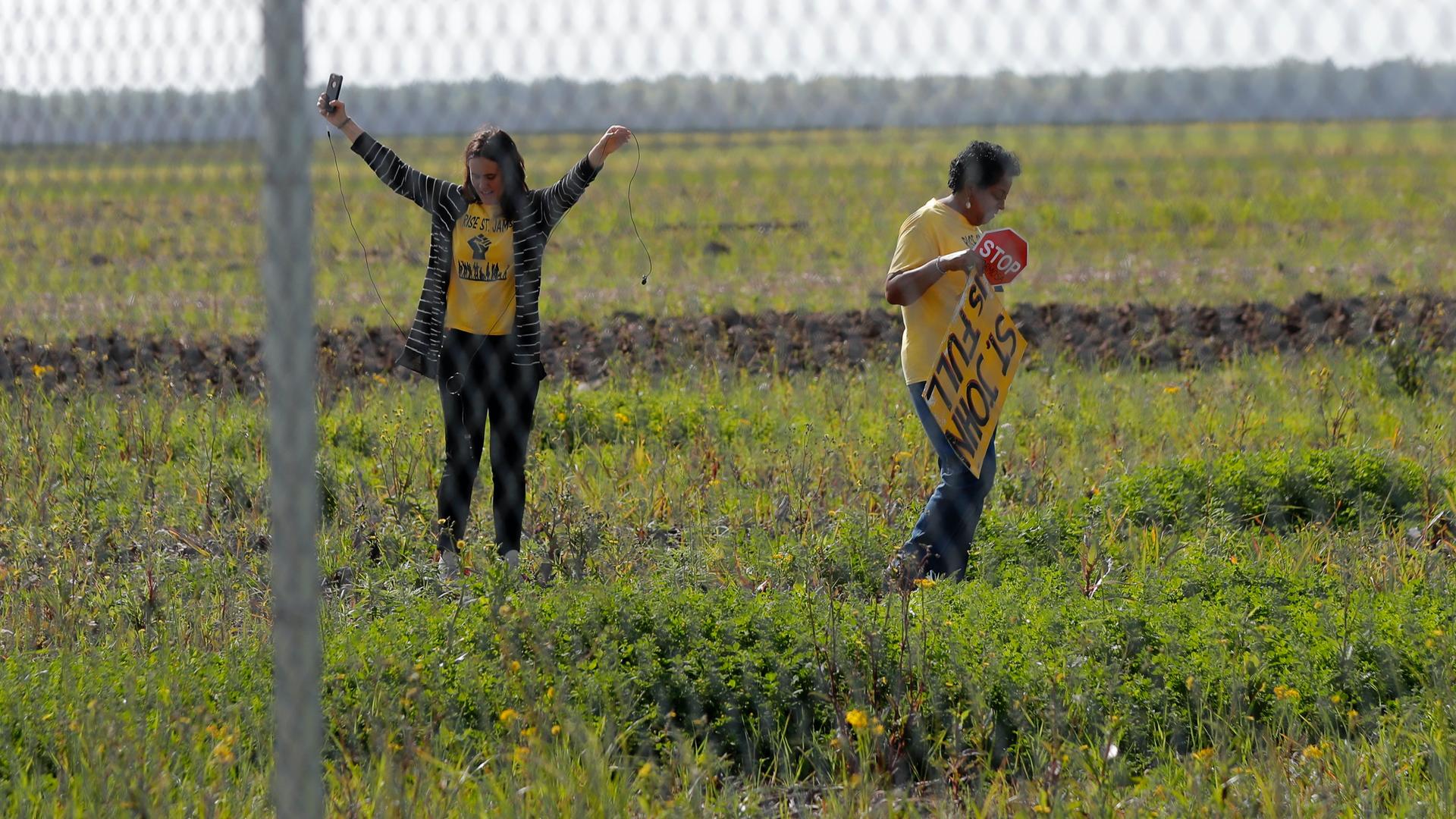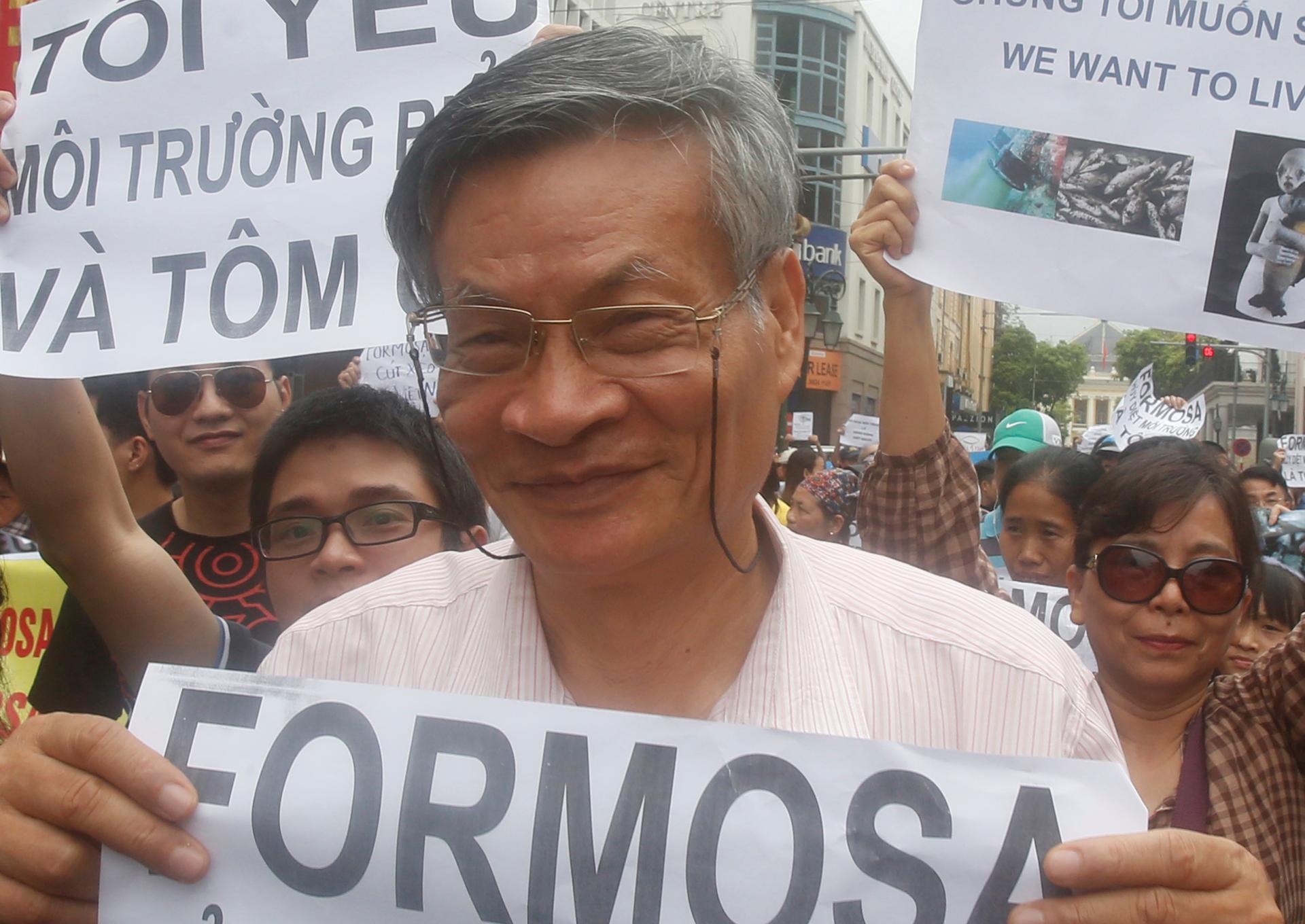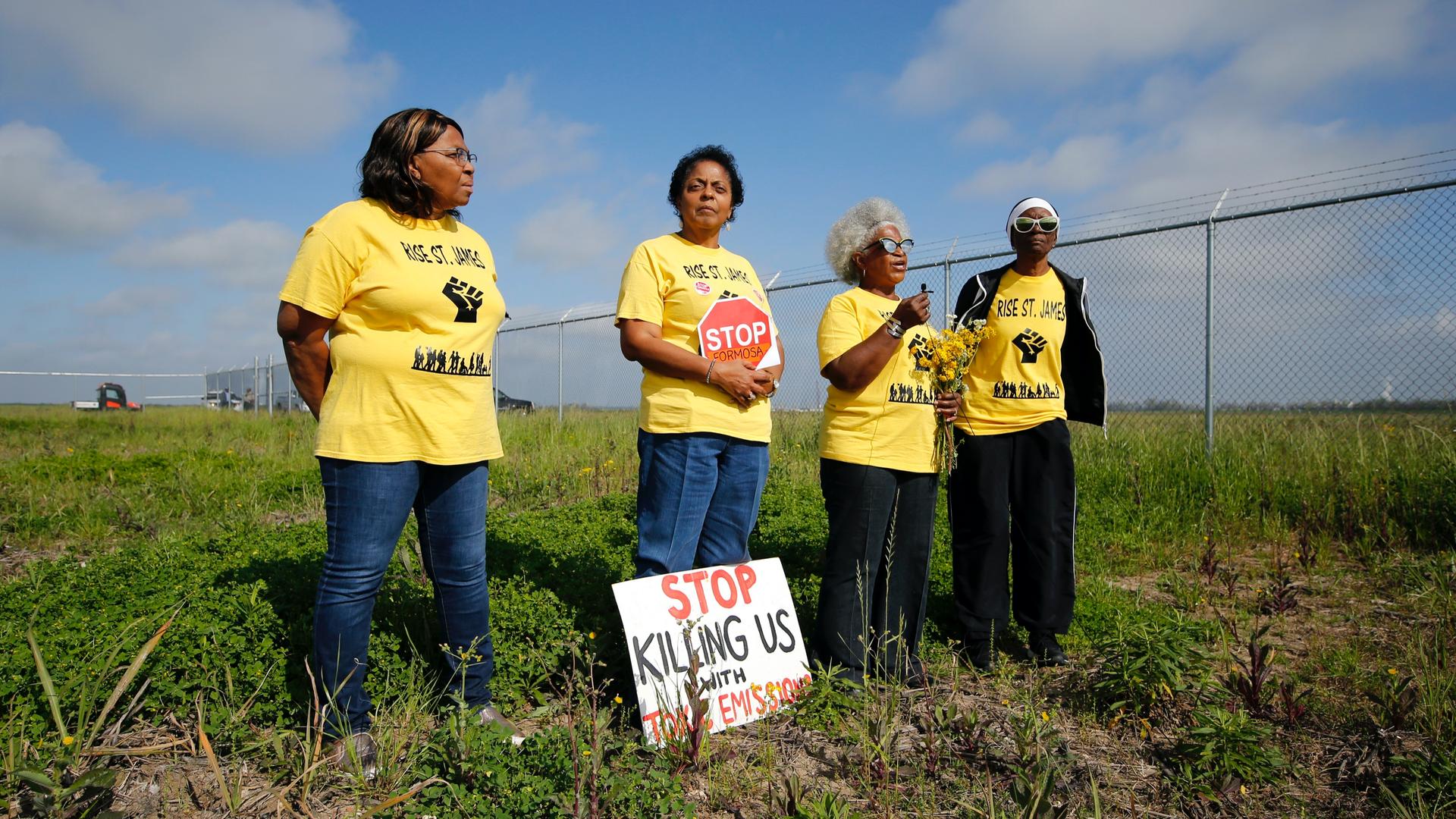From Louisiana to Taiwan, environmental activists stand up to a major plastics company
From Southeast Asia to the United States, activists have called attention in recent years to the harmful impact of chemical companies such as Formosa Plastics Corporation, a Taiwanese petrochemical company that operates throughout the world, including the US.
Anne Rolfes is one of two Louisiana environmental activists who now face criminal charges for protest actions she took in December to call attention to the dangers of Formosa’s expansion plans in St. James Parish, a region already packed with 140 chemical plants. Their protest — and the repercussions they face — have caught the attention of activists in Taiwan who hope Formosa’s plans will be blocked.
Related: Racial justice movement spurs a Texas city council to bar fracking expansion
“We work with people who live along the region known as ‘Cancer Alley’ where there is an enormous concentration of oil refineries and chemical plants. And we help communities either stop new places from being built or halt expansions or take action to clean up their air quality.”
“We work with people who live along the region known as ‘Cancer Alley’ where there is an enormous concentration of oil refineries and chemical plants,” said Rolfe, director of the environmental group Bucket Brigade Louisiana. “And we help communities either stop new places from being built or halt expansions or take action to clean up their air quality.”
Over the years, Formosa Plastics has been linked to chemical leaks, toxic dumping, environmental pollution and chronic illnesses experienced by people who live near its factories.
Related: Quest for racial justice in US must include environmental and climate issues, activists say
In 2017, the company applied for a permit to expand its operations and build a complex in St. James Parish. While their application was still pending, a judge in Texas found the company guilty of violating the Clean Water Act. Formosa was dumping little plastic pellets called nurdles into Lavaca Bay on the Gulf Coast. The violation resulted in Formosa agreeing to pay $50 million as part of a settlement — the largest amount awarded in a private citizen’s lawsuit against an industrial polluter in US history.
But Formosa Plastics was ultimately granted the permit to build the complex in St. James Parish, and Rolfes says she wanted to make a point to lobbyists pushing for the new plant. In December 2019, she got ahold of plastic nurdle samples from Texas, boxed them up, and left the box outside a lobbyist’s home.
“It was really pretty harmless, just bringing evidence from Formosa’s trial [in Texas] to their front door,” she said.
Six months later, Rolfes found out there was a warrant for her arrest connected to leaving that box at the lobbyist’s doorstep.
“Well, they cited the terrorizing law,” she said. “It was my coworker and I, so it was the two of us they cited with terrorizing. If you read the statute, it says you have to intend to really scare the general public. We intended to deliver evidence to some lobbyists. That was our intent. And we did it. We didn’t try to scare anybody. We’re not interested in doing that.”
Rolfes and her colleague, Kate McIntosh, turned themselves in and now await a hearing. If found guilty, Rolfes could face up to 15 years in prison.
Related: Nukes? What nukes? US military’s ‘neither confirm nor deny’ policy complicates activists’ trial
Activists who live in St. James Parish say those charges are meant to send a message.
“They want to silence us, but they’re not gonna silence us. They must think we’re stupid over here in St. James. But, this is one woman who is not stupid.”
“They want to silence us, but they’re not gonna silence us. They must think we’re stupid over here in St. James. But this is one woman who is not stupid,” said Sharon Lavigne, an activist with the environmental organization RISE St. James.
With 140 chemical companies in the predominantly African American St. James Parish region, Lavigne says they are making people sick.
Related: A global push for racial justice in the climate movement
“I don’t know anybody in St. James that doesn’t have a health issue,” she said. “Some people have allergies. Some people have respiratory problems. Some people have asthma — all kinds of ailments. The doctor said I have autoimmune hepatitis. And last year, they said I had aluminum in my body. On top of everything else, I have something else in my body? Oh my god.”
“I don’t know anybody in St. James that doesn’t have a health issue.”

Lavigne says the group was successful in blocking Wanhua, a Chinese company, from setting up a plant in St. James Parish last year. Authorities are looking for a reason to arrest her too, she says.
Related: ‘China’s Erin Brockovich’ goes global to hold Chinese companies accountable
“A lot of our members are afraid to speak up. They’re afraid of repercussions. I’m not afraid. I was already told to be careful and all that stuff. But, I don’t have to be that careful. Because God got me, baby,” Lavigne said.
In an emailed statement to The World, Formosa Plastics said the company will work with the community in St. James Parish to address their concerns. “There are some who are doing everything they can to stop progress in the parish, including spreading fear and confusion,” it said.
Formosa Plastics is accused of environmental violations in other parts of the world where it works: in Cambodia, dumping mercury waste, and off the coast of Vietnam, dumping toxic discharge.

Environmental activists in Taiwan say they are well aware of Formosa’s track record and they think the fear in Louisiana is justified.
“Formosa is Taiwan’s historical name, which means something like a beautiful island. To me, it’s kind of personal, that they are doing such things in the name of Formosa,” says Xu Hui-ting, an environmental activist based in Taipei, the capital. “Right now, Americans are saying, ‘no Formosa.’ It sounds sad and heartbreaking to me. But I know that they’re doing it for a reason — because what Formosa Plastics has done.”
Activist Lin Yan-ting told The World that a Formosa Plastics complex exploded last year in Yunlin, a remote county in Taiwan. Thousands of residents had to be evacuated, he says.
“Last year, there was a huge explosion. The blast was so powerful that residents within a half-mile radius had their houses damaged. Pollution rained down on their property, including a lot of farms. Yunlin is one of Taiwan’s most important farmlands so the impact was huge.”
“Last year, there was a huge explosion. The blast was so powerful that residents within a half-mile radius had their houses damaged. Pollution rained down on their property, including a lot of farms. Yunlin is one of Taiwan’s most important farmlands so the impact was huge.”
Lin and Xu both say they’re nervously watching Louisiana, hoping that Formosa Plastics will not be allowed to build a new plant in St. James Parish.
“I have friends who are from that region in Yunlin, next to the Formosa Plastics facility. They said they know the pain of the people in Louisiana. And, they don’t want what happened to them to happen to other people. People from Yunlin are showing solidarity with St. James Parish.”
“I have friends who are from that region in Yunlin, next to the Formosa Plastics facility. They said they know the pain of the people in Louisiana. And, they don’t want what happened to them to happen to other people. People from Yunlin are showing solidarity with St. James Parish,” says Xu.
Whether it’s Southeast Asia or the Gulf Coast of Louisiana, Xu says she hopes that activists won’t give up their fight for environmental protection.
